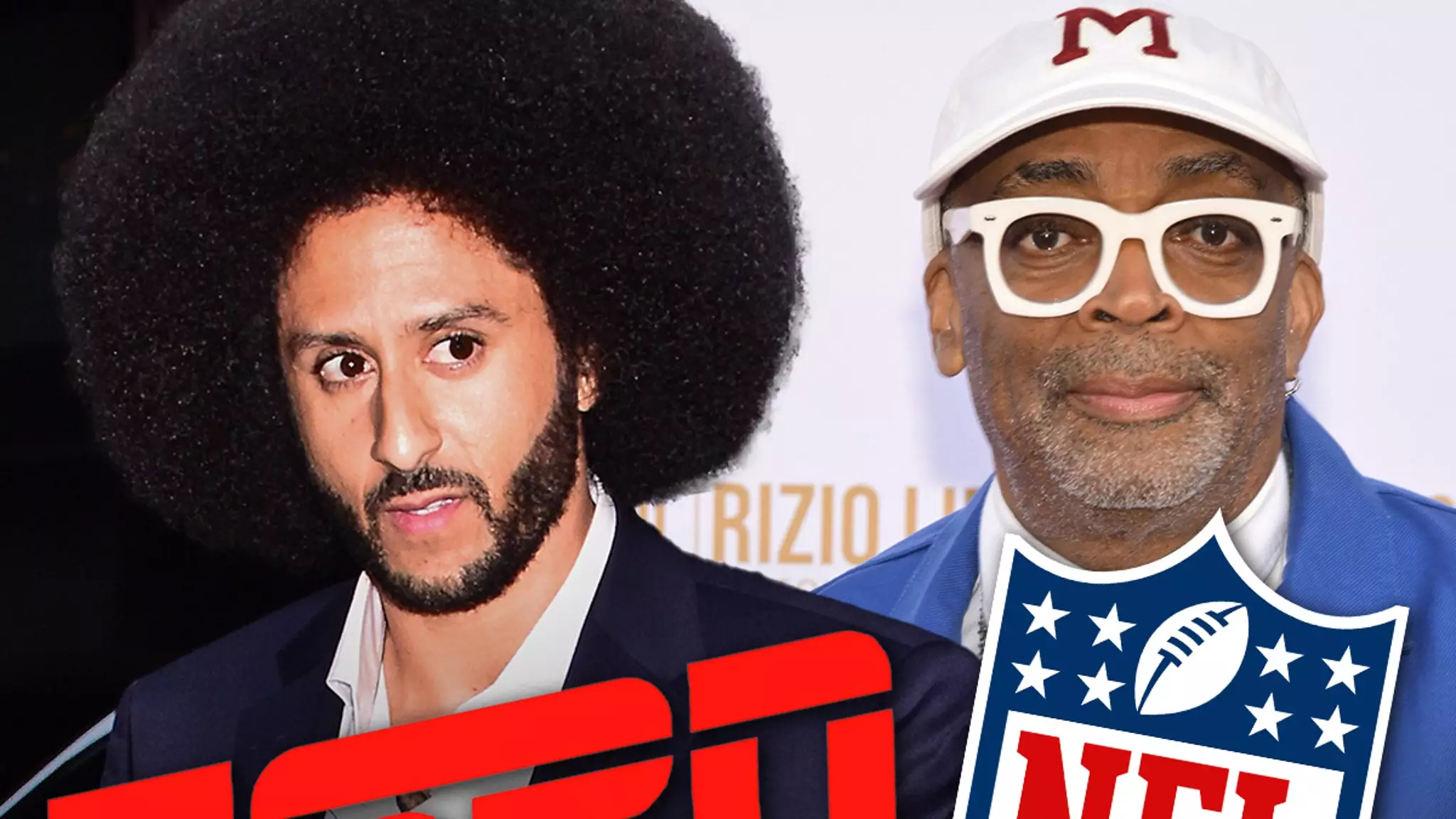In recent days, the entertainment and sports worlds were shaken by the unexpected news that Spike Lee’s highly anticipated documentary on Colin Kaepernick would not see the light of day. Initially, speculation fueled fears of corporate censorship, suggesting that pressure from the NFL—an entrenched partner of ESPN—had silenced the project. However, upon closer examination and direct insights from sources close to the matter, it becomes clear that the narrative is far more complex and less sensational than mainstream panic would suggest.
The immediate assumption by fans and media was that a powerful NFL lobby had influenced ESPN to pull the plug. This perception was reinforced by the fact that the NFL and ESPN share a long-standing relationship, with broadcasting rights dating back decades. Plus, the NFL’s recent 10% stake acquisition in ESPN, alongside the league’s ownership of broadcast properties like RedZone, seemed to tighten the perceived bond. Still, insiders reveal that the decision to cancel the documentary was rooted in internal creative disagreements rather than corporate or league pressure. While “creative differences” is often a catchphrase masking more contentious issues, in this case, it appears the project simply didn’t align with certain visions within the network or filmmakers.
Timing and Background: When and How the Decision Was Made
Remarkably, the cancellation was finalized nearly a year before it became public, indicating that the project was aborted well in advance of the recent controversy. Originally announced in 2020 and filmed in 2022, the documentary was to be a nuanced deep-dive into Kaepernick’s complex journey—covering his NFL career, activism, and the societal fallout that followed. From the outset, people involved knew the project might be sensitive, especially considering the divisive nature of Kaepernick’s protests.
The host of the recent discussions about censorship tends to overlook the reality that creative projects often face internal hurdles. Vision clashes, funding issues, or strategic reassessments can lead to cancellations, independent of external pressures. In this instance, ESPN and Spike Lee reportedly had different ideas about how to portray Kaepernick’s story or how much to focus on certain narratives, leading to the project’s shelving. The distinction is critical: it’s an internal decision based on artistic and editorial considerations, not suppression by powerful corporate interests or external entities.
Implications for the Narrative of Censorship and Artistic Freedom
The misconception that the NFL crushed this documentary underscores broader fears about corporate influence over artistic expression. Mainstream narratives often simplify complex decisions, heralding them as victories for free speech when, in reality, creative processes are shaped by a multitude of internal factors. The Spike Lee documentary saga demonstrates that the path from concept to screen is riddled with internal dynamics—editorial disagreements, strategic pivots, or shifts in messaging—that are rarely as nefarious as external observers may believe.
Furthermore, this situation underscores a vital point: not every canceled project is the result of censorship or external pressure. Many are casualties of internal mismatches, budget constraints, or changes in strategic priorities. While it’s tempting and easier to believe that a powerful league or network suppresses dissenting voices, the truth often lies in the messy reality of creative development. An overly simplistic narrative of suppression risks dismissing nuanced internal conflicts that ultimately determine whether a project reaches the audience.
In the end, Spike Lee’s Kaepernick documentary falling apart isn’t necessarily a victory for censorship skeptics but a reminder of the complex, often opaque, nature of entertainment production. It underscores the importance of resisting easy explanations and pushing for genuine transparency—something that benefits both creators and audiences seeking authentic stories.

Leave a Reply